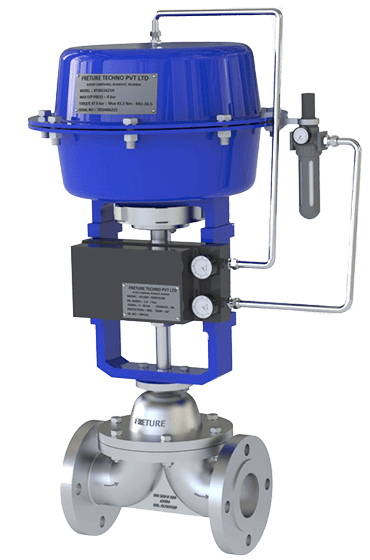What is a Diaphragm Control Valve?
Diaphragm Control Valve are pivotal in many industrial processes, providing precise control over the flow of fluids and gases. Their unique design makes them suitable for a variety of applications, from chemical processing to water treatment. This blog explores the functionality, benefits, and applications of these control valves, highlighting why they are a preferred choice in many industries.
A Diaphragm Control Valve is a type of valve that uses a flexible diaphragm to regulate the flow of fluids. The Diaphragm, typically made of materials like rubber or elastomer, acts as a barrier between the valve’s internal components and the process fluid. This design allows the valve to control flow with high precision while minimizing leakage and wear.

Key Benefits
Precision Flow Control: These control valves are known for their accurate flow regulation. The flexible diaphragm allows for fine adjustments, making these valves ideal for applications where precise control is essential.
Leakage Prevention: The diaphragm design helps in preventing leaks by creating a tight seal. This is particularly important in industries dealing with corrosive or hazardous fluids, where leakage can lead to significant safety and environmental issues.
Durability and Maintenance: Diaphragm valves are built to withstand harsh conditions. Their design reduces the risk of clogging and minimizes maintenance needs. The replaceable diaphragm further extends the valve’s lifespan, making it a cost-effective solution for long-term operations.
Applications
These control valves are versatile and find applications across various industries:
Chemical Processing: They are used to handle aggressive chemicals and maintain process integrity, providing a reliable solution for controlling corrosive fluids.
Water Treatment: In water treatment plants, diaphragm valves regulate the flow of water and chemicals, ensuring efficient operation and consistent water quality.
Pharmaceuticals: These valves play a crucial role in maintaining sterile environments and precise fluid control in pharmaceutical manufacturing.
These control valves are indispensable components in industrial applications where precision, reliability, and durability are crucial. Their unique design and benefits make them suitable for a wide range of processes, from chemical handling to water treatment. For high-quality Diaphragm Control valve that meet your industry needs, consider partnering with leading manufacturers known for their expertise and commitment to excellence.





